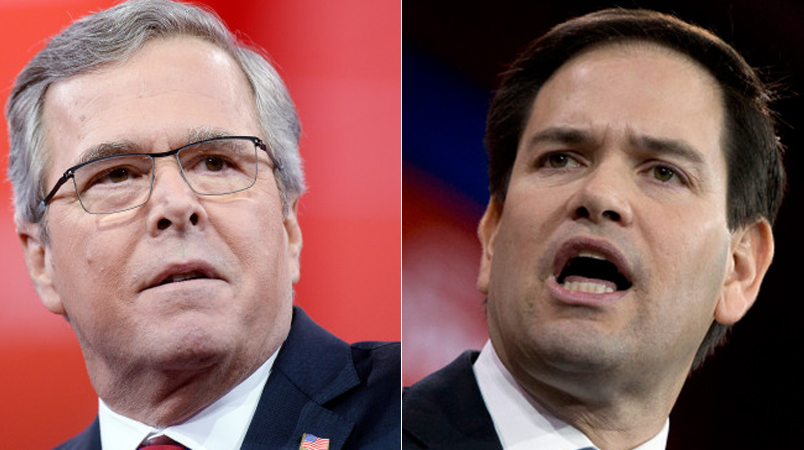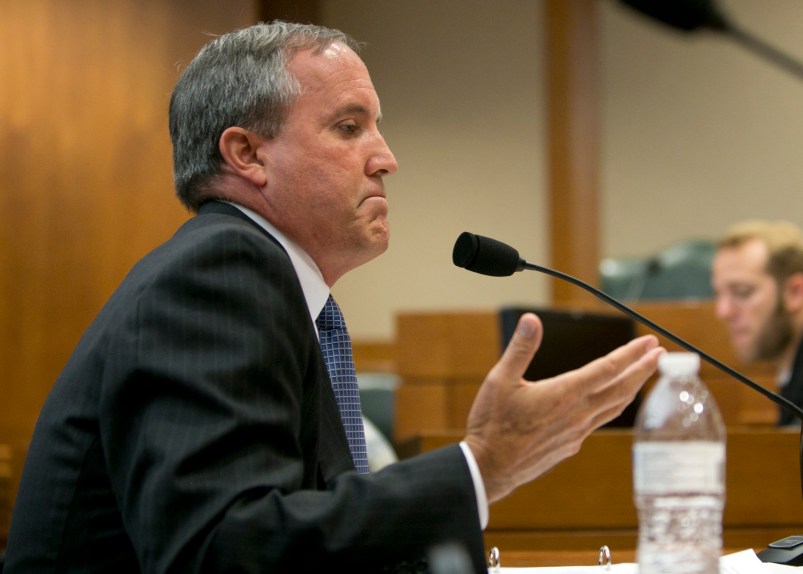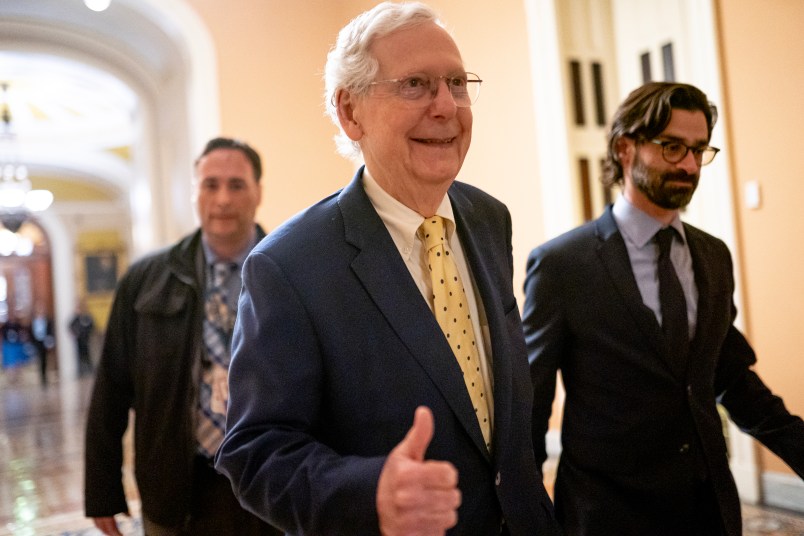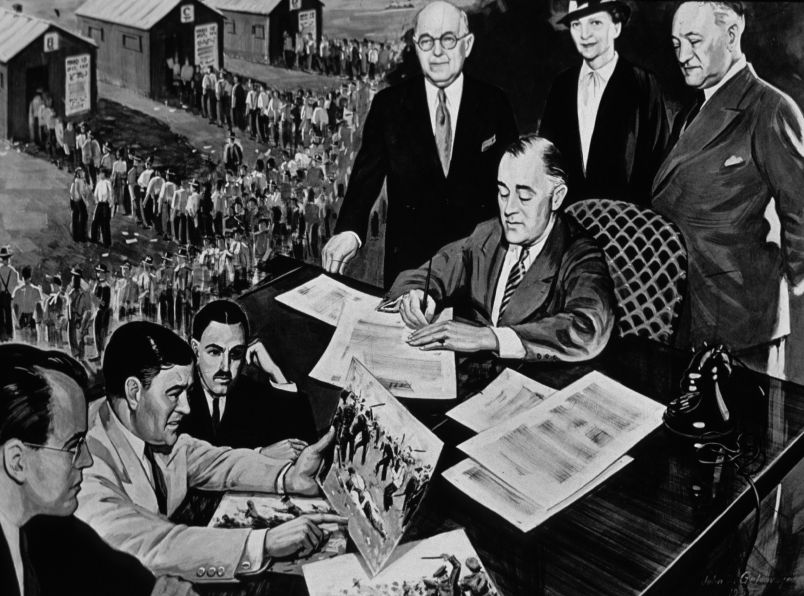Back when the first planning meetings for Jeb Bush’s 2016 presidential campaign were likely being held, in late 2013 or early 2014, an analysis of rivals to his nomination probably looked pretty sunny.
There were a bunch of retreads from 2012, with the most threatening being the actual nominee, Mitt Romney, who occupied a position on the ideological spectrum and in the esteem of party elites uncomfortably similar to Jeb’s. There was the 2008 redux Mike Huckabee. There were the governors—Scott Walker, John Kasich and Rick Snyder—who had to get through reelection battles of varying difficulty.
Least threatening of all might well have been Florida’s own Senator, Marco Rubio, long in Bush’s shadow in the Sunshine State, and just coming out of a disastrous engagement with comprehensive immigration reform that had taken away more than half of his support in early nomination contest polls. As recently as the end of 2014, the conventional wisdom in Florida was that Rubio wouldn’t run if Bush did, and might instead run for governor in 2018 in hopes of becoming Jeb Bush when he grew up. After all, he was only 44, with many presidential cycles ahead of him, while this could be the 62-year-old Jeb’s best and last shot.
That was then and this is now. As Jeb Bush announced his presidential candidacy yesterday, the early stages of the Invisible Primary have not worked out as planned. Bush cannot seem to get his horse-race numbers out of the low teens. Despite near-universal name recognition, his favorable/unfavorable ratios both among Republicans and voters generally are lower than average. A dangerous percentage of Republicans seem to have ruled out voting for him so long as anyone else is running. Contrary to his electability argument, he’s not showing any particular strength in trial heats against Hillary Clinton. And even his ace-in-the-hole, the vast haul of Super-PAC money he delayed his official candidacy to collect, could now reportedly come in at less than the $100 million his people incautiously predicted once the first reporting period arrives.
Worse still, the field isn’t looking like Jeb Bush and the sixteen dwarfs. At least two candidates are showing signs of surpassing Bush in party-wide appeal, especially in the early states. Worst of all, one of them is named Marco Rubio.
Even as Bush’s standing among Republicans—especially self-identified conservatives—has stagnated at best, Rubio seems to have been fully forgiven for his immigration heresy. His approval ratios among Republicans are consistently the best in the field, and now his horse-race numbers are rising as well. Initially viewed as a second-tier candidate who might graduate to the first tier if Bush faltered, he’s now a dangerous rival. Earlier fundraising for a 2016 Senate reelection bid gave Rubio a $31 million head start. He has at least one very deep-pocketed billionaire, Norman Braman, firmly in his corner, with the deepest pockets of them all, those belonging to Sheldon Adelson, reported to be opening to him in a big way.
Jeb’s redoubt in a tangle with Rubio has long been assumed to be their mutual home in Florida, particularly now that the state has decided to make its March 15 primary a winner-take-all affair that could mortally wound the loser. That could still be the case; Bush has been building a political organization in the state since 1994, and could go toe-to-toe with Rubio among the state’s Hispanic voters, given his Mexican-American wife, his Spanish fluency, and his close ties to a wide array of Latin American communities in South and Central Florida. But Rubio retains Tea Party ties from his successful 2010 primary race against Charlie Crist, and Bush hasn’t been on a Florida ballot since 2002. While Bush has comfortably led in early Florida polls, the most recent, a Mason-Dixon survey in April, showed Rubio actually taking a narrow 31-30 lead.
Jeb Bush’s ultimate nightmare may have been invoked by the other candidate eclipsing him in popular support, and currently leading the pack in Iowa: Scott Walker, who suddenly began talking recently about forming a ticket with Rubio before any votes are cast. Since neither putative running-mate is likely to defer to the other, Walker was probably just messing with Jeb Bush’s head. But it was another indication of the bullseye Jeb has painted on his back with too much early-front-runner talk from his supporters.
So what does Bush do to get his mojo back? One important straw in the wind that got far too little attention in the hype over his announcement was this indication of how he is planning to spend all that money, from a Jonathan Martin/Patrick Healy New York Times report:
Mr. Bush’s new campaign manager, Danny Diaz, is widely known in Republican circles as a hard-edge operative who is driven by trying to dominate daily news coverage with his candidate’s message or his rivals’ weaknesses….
The Bush campaign sees Mr. Rubio as vulnerable on his Senate record, which is short on legislative success and includes shifts on immigration, and on his history of managing his finances. And they regard Mr. Walker, too, as susceptible to attack on issues on which he has changed his positions, according to the advisers. By hiring Mr. Diaz, Mr. Bush wanted to send a clear signal that “the culture of the Bush operation will now be a Pickett’s Charge engagement campaign with his main opponents,” according to one Bush ally.
Back in better times, Bush and his crew talked a lot about running a strictly positive nominating campaign. Now it looks like they’re prepared to go after Jeb’s old friend Marco Rubio with a clawhammer for his sloppy personal finances, something Democrats have been wary of doing given the number of voters who have missed a few payments themselves. Yes, the Bush campaign may be getting a mite desperate already. But they should remember how the original Pickett’s Charge turned out.
Ed Kilgore is the principal blogger for Washington Monthly’s Political Animal blog, Managing Editor of The Democratic Strategist, and a Senior Fellow at the Progressive Policy Institute. Earlier he worked for three governors and a U.S. Senator. He can be followed on Twitter at @ed_kilgore.









